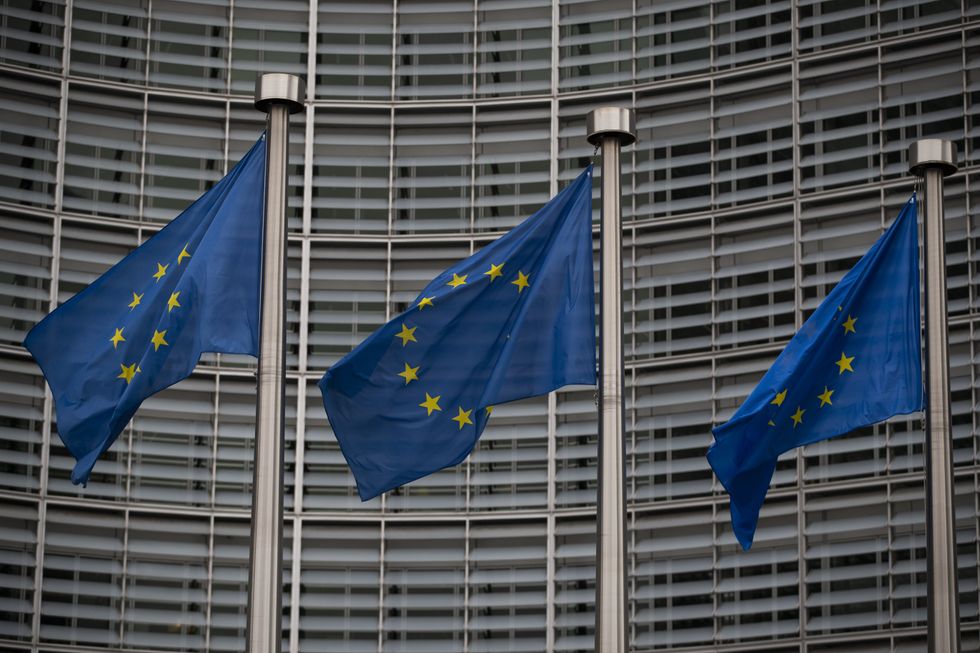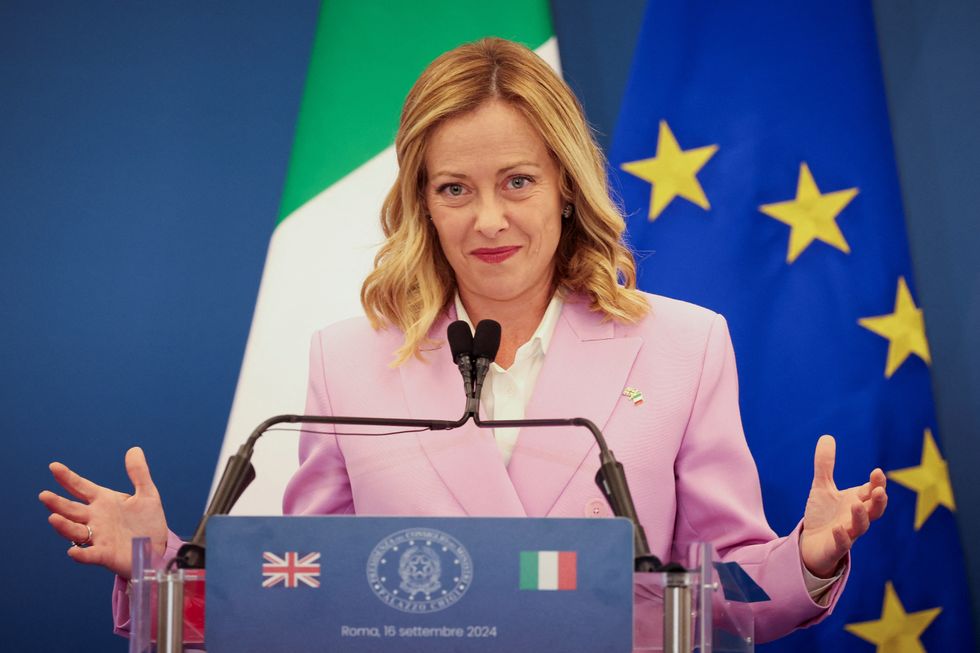EU leaders will meet in Brussels next week to discuss migration, competition, Ukraine and the Middle East
PA Media
A flurry of right wing populism across Europe has helped to push for more effective asylum and migration policies within the EU
Don't Miss
Most Read
Trending on GB News
A majority of European Union member states have sought radical measures to return illegal migrants to their home country.
The member states, including Italy and France, are prepared to implement stronger policies to forcibly return or sanction migrants who do not abide by set deportation orders.
Ahead of next week's EU summit in Brussels, documents have outlined a draft legal text which involves a "paradigm shift in the return process" and "determined action at all levels to increase and speed up returns".
Other pressing topics that leaders will discuss include the war in Ukraine, the Middle East, competition and foreign affairs.

EU leaders will meet in Brussels next week to discuss migration, competition, Ukraine and the Middle East
PA Media
Internal discussions over the past week are claimed to have resulted in a working majority of EU governments to push through the legislation.
This has been driven by right-wing led member states Austria and the Netherlands.
The diplomatic text includes instruction from 15 member states for an overhaul of asylum and migration policies within the bloc. This includes Germany, France and Italy.
Proposed changes would permit police forces to detain illegal migrants who fail to return of their own accord to their home country or wherever they entered first in the EU.
LATEST DEVELOPMENTS:
- Farage fumes ‘we’re being made mugs’ as Albanian burglar asylum seeker flaunts Ferrari
- Thousands of protesters gather for EU's 'anti-migrant Glastonbury' as they cheer for Geert Wilders and Viktor Orban
- ‘Send them back to France!’ Andrew Pierce blasts ‘soft touch’ Britain amid new damning migrant crisis numbers
Additionally, the governments are seeking decreased judicial oversight of the new legislation by the European Court of Justice.
These tougher migration policies have been claimed to be instigated by the recent surge for right wing parties in national elections, although they have failed to secure as much support in the European Parliament as they were predicted ahead of the election in June.
Still, support for liberal and green parties has slowly been dwindling over the years.
However, the European Parliament has maintained a centrist mix of parties, with the centre right European People's Party, centre left Socialists and Democrats and the liberal Renew group as the largest parties in the parliament.

Italian PM Giorgia Meloni has moved her far-right European Conservatives and Reformists closer to Europe's centre right party
PA Media
Despite this, UK think tank Chatham House forecast that this right-wing leaning could contribute to a changed attitude towards policies on migration, environment, security and enlargement.
This has partly been attributed to the EPP, which has moved more closely to Giorgia Meloni's far-right European Conservatives and Reformists.
Chatham House has said that the far-right's degree of power will be determined by their ability to unite in the Parliament. They do not align on their stances on support for Ukraine, as well as other fiscal responsibilities.
EU leaders will meet later next week to discuss these migration proposals further.







